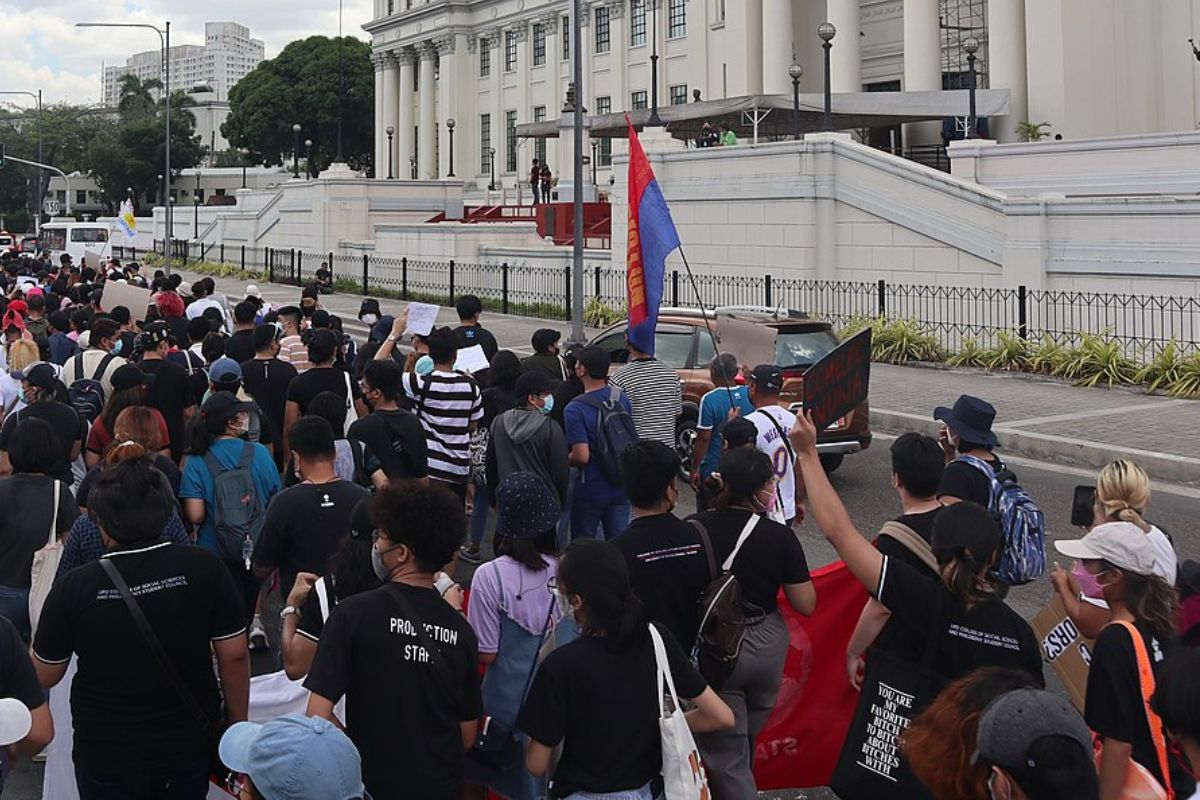Masked rioters linked to a Hip-Hop gang allegedly inspired by a local rapper were behind violent clashes during anti-corruption protests in the Philippines’ capital, according to police.
The Manila Police District said the group—dressed in black and wearing face coverings—engaged in street battles with officers at Ayala Bridge and hurled bottles at law enforcement near the Mendiola Peace Arch.
A trailer was also set ablaze close to the road leading to Malacañang Palace.
“The information we obtained is that they are members of a Hip-Hop gang,” said MPD spokesperson Maj. Philipp Ines. “What they said was that they were merely influenced by a so-called rapper personality.”
Ines declined to name the rapper, citing that investigators have not yet verified the claims made by those arrested.
The violence erupted during the “Trillion Peso March,” a nationwide protest held on September 21 to denounce alleged corruption in government infrastructure projects.
Demonstrators accused officials of pocketing billions of pesos through faulty flood control programs.
The protest date marked the 53rd anniversary of the 1972 martial law declaration by former president Ferdinand Marcos Sr., a period remembered for widespread human rights abuses, extrajudicial killings and disappearances.
According to the AP, the day has become a symbol of resistance and remembrance for victims of the Marcos regime.
More than 30,000 people took part in demonstrations across the country. In Manila alone, the unrest left 129 police officers and 76 civilians injured, including both protesters and bystanders.
Authorities say the Hip-Hop gang’s involvement adds a new layer to the investigation, as youth groups in the city increasingly turn to music and online platforms for identity and influence.
The police are continuing efforts to identify all participants in the violence.
The protests, fueled by frustration over alleged financial misconduct, reflect a growing demand for transparency and accountability from the government.
Investigations into the clashes and the rapper’s possible role remain ongoing as of late September.
